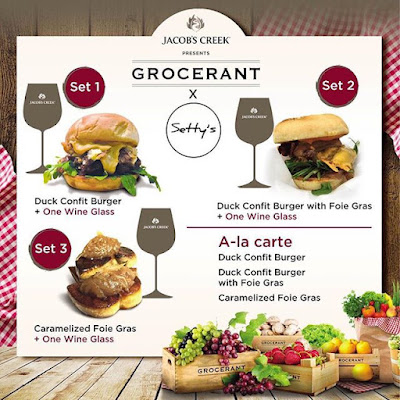Ready-2-Eat and Heat-N-Eat fresh
prepared food continues to drive top-line sales and bottom-line according to
Steven Johnson Grocerant Guru® at Tacoma, WA based Foodservice Solutions®. Restaurants
from fast food outlets to fine dining establishments are currying favor with
consumers seeking an answer to the age–old question; What’s for Dinner. They
are doing that by selling meals and meal components for take out and or
delivery.
In
case you did not know the vast majority of U.S. restaurants (79%) report that
their revenue is steady or growing, but a 34% average increase in their labor
costs this year is eating into profitability and impacting hungry consumers.
So,
what to do, well more than half are adopting new technology, including
artificial intelligence, to manage labor deficits and costs as they work to
meet strong consumer demand. This is according to Popmenu’s
latest nationwide research on U.S. restaurant leaders and consumers.
The
majority (75%) of consumers dine at or order carryout/delivery from restaurants
at least once a week. Convenience is a key motivator for two-thirds of
consumers, especially as their schedules grow increasingly busier: 38% say they
don’t have time to cook, up from 28% last year. One in four consumers say
restaurant dining has just become a way of life.
5
Restaurant Dining Trends to Watch
o
Willingness to pay for a table: Consumers can expect more
competition for restaurant tables in the coming months—29% have tipped a
host/hostess to get a table faster. Nearly half (46%) say they are willing to
pay for a reservation.
o
Dialing back on dessert, alcohol and more: As consumers contend with
inflation and tighter household budgets, 42% are reducing money spent on
dessert, 35% on alcohol, 35% on appetizers, and 30% on side dishes.
o
More demand for healthy fast food: 89% of consumers eat fast food
at least once a week while more than half eat fast food two times or more per
week; 38% of consumers say they typically choose healthy options when eating
fast food.
o
More tech-enabled hospitality: 55% of restaurant operators are
implementing new technology to help with the labor shortage, from marketing and
answering phones to online ordering and online reservations.
o
Shorter hours:
44% of restaurant operators have reduced their hours, which may be a permanent
operational decision—the majority say they’ve been able to generate the same
amount of revenue with reduced hours.
“Restaurants
have become part of the weekly, if not daily, routine for many consumers—which
creates both opportunity and challenge,” says Brendan Sweeney, CEO and
Co-founder of Popmenu.
“Restaurants are understaffed. More than half are concerned about new minimum
wage requirements for delivery drivers. You’ll see restaurants continue to
evolve their tech stack to create more efficient and cost-effective operations,
so they can keep consumers engaged and scale their business.”
Are you ready for some fresh ideations? Do your food
marketing ideas look more like yesterday than tomorrow? Interested in learning
how our Grocerant Guru® can edify your retail food brand while creating a platform
for consumer convenient meal participation, differentiation,
and individualization? Email us
at: Steve@FoodserviceSolutions.us or visit: us on our social media sites by
clicking one of the following links: Facebook, LinkedIn, or Twitter





No comments:
Post a Comment